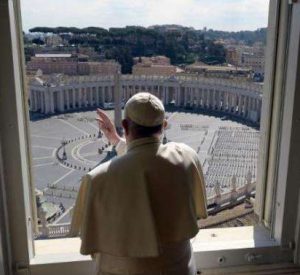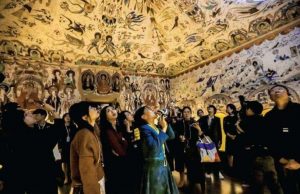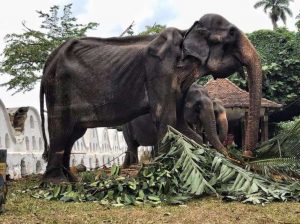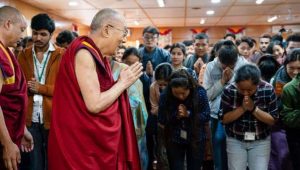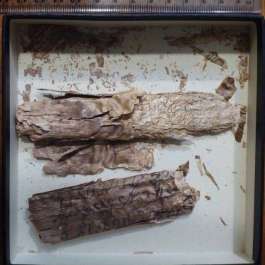
Jungto Society, the international Buddhist community founded by the revered Korean Dharma master and social activist Venerable Pomnyun Sunim (법륜스님), recently conducted its 33rd annual pilgrimage across India and to Nepal. Held under the theme “Following in the Footsteps of the Buddha,” the pilgrimage, which ran from 19 January to 2 February, was attended by more 500 practitioners.1
This year’s pilgrimage was particularly notable for two reasons: first was the participation, for the first time in the Jungto pilgrimage’s 33-year history, of non-Korean practitioners: the 500-plus Korean Buddhist pilgrims were accompanied nine practitioners from Italy, Japan, Thailand, the United Kingdom, the United States, and Vietnam. Second, the pilgrimage also coincided with celebrations for the 30th anniversary of Sujata Academy, a remarkable community school and social empowerment project established by Ven. Pomnyun Sunim in Dungeshwari, in the northeastern Indian state of Bihar. This project has transformed the lives of an entire community of people who have faced systemic social and economic exclusion as a result of India’s conservative Hindu caste hierarchy.2
The academy is named after Sujata, the young woman who is said to have nourished the ailing and emaciated Siddhartha Gautama with a bowl of milk-rice, thus ending his six years of extreme asceticism. Tuition at the academy is provided free of charge. The school’s principal goal is to educate every student in basic literacy and numeracy. Classes are taught from kindergarten to secondary level, alongside adult literacy classes and skills training. Students who wish to continue beyond elementary education and attend secondary school are required to teach kindergarteners or to help out in the onsite Jivaka Hospital in the mornings and to attend classes in the afternoon, working in the spirit of giving back to the community. The campus also includes a warehouse, a dormitory, a large playing field, and sports equipment for the children.
Ven. Pomnyun Sunim established the international Buddhist humanitarian relief organization Join Together Society (JTS) as an expression of the compassion of engaged Buddhism and the belief that helping others is the best way to enrich one’s own life. Headquartered in Seoul, JTS operates four branch offices in South Korea and the United States, along with field offices in India and the Philippines. JTS Korea and JTS America oversee fundraising, while JTS India and JTS Philippines conduct development projects in cooperation with local communities. The relief organization has also earned Special Consultative Status to the United Nations Economic and Social Council (ECOSOC).
JTS India began its work in Dungeshwari, some 12 kilometers northeast of the Buddhist pilgrimage hub of Bodh Gaya, in the early 1990s, aspiring to fulfill the mission: “The hungry should eat; the sick should be treated; children should be educated in time.”
This region is surrounded by the Pragbodhi Hills where the historical Buddha, Shakyamuni, is said to have spent six years in a cave as an ascetic. And it’s here that JTS India has been working to empower the villagers of Dungeshwari to live their lives free from hunger, illiteracy, and disease.3
The people of Dungeshwari are primarily Dalits, who face systemic social and economic exclusion as a result of the conservative Hindu social hierarchy. “Dalit,” which translates as “broken” in Sanskrit, is a term for the very lowest castes, whom members of the so-called “higher” castes still to this day deem “untouchable,” despite the practice being prohibited in the Constitution of India. By working directly with disadvantaged communities, JTS aims to help them to mobilize their own capabilities and resources to create a more prosperous and sustainable future.
Jungto Society Dharma teacher Doyeon Jang (Dharma name Bogwang), is the director of Sujata Academy. She has overseen the development of this ambitious project, facing numerous challenges, both personal and structural, in the process of bringing this expression of compassion and social transformation to fruition.
BDG sat down with Dharma Teacher Bogwang on the sidelines of Sujata Academy’s 30th anniversary celebrations to seek her personal perspective on Jungto Society and the impact of engaged Buddhism in Dungeshwari.
BDG: How long have you been a Jungto Society volunteer?
Dharma Teacher Bogwang: I’ve been a part of this community since 1990, so about 34 years altogether. I first encountered Ven. Pomnyun Sunim when I was a college student. As a result, during my college years, I became quite involved in youth activities. After I graduated, I was able to devote more of my time to Jungto Society. So, in effect, I’ve been with Jungto Society from the very beginning!
As you know, in 1990, the Democratic movement in South Korea was still evolving. I was very impressed by Ven. Pomnyun Sunim’s vision for a social movement—of what people can do to help create a better society, and how we could move society forward. And that’s how I first became involved.
At the very beginning, Ven. Pomnyun Sunim was joined by a handful people who had already graduated college, but I was certainly the youngest among them. And I’ve remained with Jungto Society ever since.
BDG: And how long have you been working here at Sujata Academy?
DTB: It’s going to be nine years in February this year; I first came here in March 2015. Although my work here is not only concerned with Sujata Academy and Jivaka Hospital; we also have the Jungto Foundation near Sankasia, in Uttar Pradesh. So I’m actually charge of all JTS activities in India. Sankasia, close to the border with modern-day Nepal, is home to the descendants of the Shakya clan of Siddhartha Gauthama, and we in the early stages of developing a site there as a center for Buddhist study and retreat, as well as a school for the local children.
BDG: What have been some of the biggest challenges over the past nine years in developing this project?
DTB: At the very beginning, when I first arrived in Dungeshwari, I was unable to even speak Hindi, so communication was a big obstacle—I always had to rely on someone to help me talk to the local people. Then there was the weather! During the hot season, the temperature can climb as high as 50°C.
We’ve only had electricity here since 2015; before that there was none. And even though we now have electricity, there is no air-conditioning, no refrigerators. Yet even if we could afford to have things like air-conditioning and refrigerators, we wouldn’t want to use them because we want to maintain a standard of living comparable to that of the local residents.
BDG: Was it difficult for JTS to be accepted by the people here?
DTB: Building trust actually wasn’t that difficult. Before we establish Sujata Academy and the foundation, Ven. Pomnyun Sunim spent about four months living here, and while he did so he stayed in a goat pen. When Ven. Pomnyun Sunim first came here, he told the local people that he wanted to live with them and asked for a place to stay. One of the villagers offered Sunim accommodation, alongside his goats—which are highly valued among the local community and so are kept inside the home at night. And that’s where he stayed for those four months. In this way, Ven. Pomnyun Sunim was quickly able to earn the trust and acceptance of the villagers.
Last year there was a caste-based conflict between the local people, and I held a meeting with the younger people in the area in an effort to resolve it. Most of them said that they viewed Ven. Pomnyun Sunim as almost a kind of god. In traditional Indian culture and religions, there are so many deities, and so this is a cultural expression of how highly they respect him.
In the end, we were able to mostly resolve the conflict: it was between people of the lowest caste, who are Dalits, and the next lowest caste. The Dalit people have received an education, thanks to Sujata Academy, and they wanted the school’s volunteers to come exclusively from their caste and not share those posts with people from higher castes. Now that the Dalit people have received an education, they feel confident about Sujata Academy and Jivaka Hospital, and they are enthusiastic about working as volunteers to help teach the younger generation, and they want to hold on to those positions. Today, the Dalit community makes up about 85–90 per cent of the students at Sujata Academy, with 10–15 per cent coming from higher castes.
BDG: What is the scope of the project today?
DTB: Now we have about 1,030 students in the preschool. We run two grammar schools, one here and another on the other side of those hills, with a total of about 450 students. And there is one middle school, here at Sujata Academy, with about 80 students. The Indian government allows us to take the children up to eighth grade, after which we’re not allowed to teach them. In such cases, if the student wants to continue their studies, then our foundation will support their tuition at a government school.
Students who reach second grade in middle school are obliged to take an oath that they will volunteer at the school. If they choose not to volunteer, then they cannot continue to attend school after second grade. The underlying reason for this is that the first and foremost purpose of Sujata Academy is to ensure the children are given basic literacy and numeracy skills in order to live. So if they don’t want to volunteer after middle school, then they don’t need to go any further.
On a typical day for middle school students, they carry out volunteer work in the morning, such as working in the kitchen, or in the garden, or in Jivaka Hospital. And then in the afternoon they have classes. After graduating from middle school, they become teachers for the preschool children.
It can be very challenging for the children who want to study beyond this point—mainly for economic reasons. However, Ven. Pomnyun Sunim and the foundation understands their circumstances, and so we encourage the students to develop their artistic and creative interests.
In total, there are about 12,000 people living in the area. And, in fact, JTS is not only providing educational opportunities for the children, but is taking care of entire villages. For example, the local residents can come to Jivaka Hospital whenever they need to, and they are treated for free. When a new baby is born, the family can report to the foundation, which will provide support in terms of rice, clothing, and other necessities for the household. And when a family member passes away, they also receive additional support.
There are about 15 villages altogether, and we monitor the populations, and educational and economic status, so we can keep track of each village in the area. And every three years we gather new data. Each village has a leader, and we hold weekly meetings with them, where they can share their concerns. For example, if someone has fallen sick or needs additional care, then they can come to the weekly meeting to discuss the situation and find a solution.
BDG: What have been the main accomplishments in Dungeshwari?
DTB: We all know that one generation represents about 30 years, and according to Ven. Pomnyun Sunim, if one wants to manifest real change in society it takes about three generations, or 90 years. So this 30th anniversary of Sujata Academy represents phase one—the first generation.
If I were to summarize our main accomplishments here for these past 30 years, I would say that the first has been eradicating illiteracy and innumeracy among the younger generations; second is that we have almost completely wiped out tuberculosis in the area—which used to be widespread largely as a result of malnutrition—as part of ensuring a proper level of public health, we also operate mobile clinics for people without access to transportation or who are to weak to travel, at least once a week and sometimes twice a week. Third, has been improving the general living conditions of the local residents.
BDG: Is there anything that you’d like to mention in closing?
DTB: Wherever you live—no matter whether it’s India or Korea—according to the Buddha’s teaching, there is no person who is higher or lower than any other. We are all equal.

3 The Hungry Should Eat: JTS Brings Buddhist Compassion and Relief to India (BDG)
See more
Pomnyun
Jungto Society
JTS Korea
JTS America
Related news reports from BDG
Engaged Buddhism: Ven. Pomnyun Sunim and JTS Volunteers Bring Education to Underprivileged Communities in the Philippines
Engaged Buddhism: Ven. Pomnyun Sunim Shares the Warmth of Compassion with Vulnerable Communities in Korea
Ven. Pomnyun Sunim Joins Religious Leaders in Interfaith Peace Declaration on 70th Anniversary of Armistice on the Korean Peninsula
Pathways to Peace: Ven. Pomnyun Sunim Delivers Talk on Rising Tensions on the Korean Peninsula
Engaged Buddhism: Ven. Pomnyun Sunim Joins JTS Korea Volunteers for Humanitarian Relief Work in Türkiye
Engaged Buddhism: JTS Korea Distributes Humanitarian Aid in Pakistan
Engaged Buddhism: Ven. Pomnyun Sunim and JTS Volunteers Bring 100,000 Gas Stoves to Rohingya Refugees in Bangladesh
Engaged Buddhism: Ven. Pomnyun Sunim Shares the Fruits of Compassion to Mark the Birth of the Buddha
Engaged Buddhism: Ven. Pomnyun Sunim Delivers Compassion to the Vulnerable in Korea
Engaged Buddhism: Jungto Society Delivers Compassion for the Vulnerable in Korea
Engaged Buddhism: JTS Korea Distributes Emergency Flood Relief in Cambodia
Related features from BDG
Living a Life without Suffering
Live Life Lightly
Prostrating as a Part of Buddhist Practice
Suffering and the Significance of Insignificance
Treasure the Present and Value Your Own Life
Free Will and Freedom from Suffering
Do Not Sacrifice Later for Now
Begin Life Now
Becoming the Master of Your Own Life
You Are Alive Today
Everyone Has the Right to be Happy
Personal Action to Mitigate the Climate Crisis
Awareness, the Beginning of Change
How to Live Life More Freely
Related videos from BDG
Dharma Q+A with Ven. Pomnyun Sunim
Wisdom Notes from Ven. Pomnyun Sunim





















